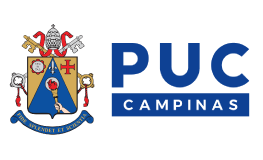Lines of Research:
- TELECOMMUNICATION SERVICE NETWORK MANAGEMENT
Development of devices, software, systems, processes, and strategies for managing telecommunications networks.
- INFORMATION TECHNOLOGY APPLIED TO SERVICES IN TELECOMMUNICATION NETWORKS
Development of information technologies applied in telecommunications network services.
Objectives
The objective of the Professional Master’s Degree Course in Telecommunication Networks Management from the Stricto Sensu Post-Graduation Program in Telecommunication Networks Management is to form Professionals/Researchers in the areas of Telecommunications, Networks, and Informatics, providing knowledge and activities in Emerging Technologies in telecommunication networks directly related to Telecommunications Companies to master’s degree students. The Program aims at supplying the demand from companies for human resources with solid scientific/technological knowledge and form a professional that knows how to locate, recognize, identify, and above all, use the research as a means to aggregate value to his/her activities.
Professionals with such characteristics will be able to effectively contribute with activities of decision in Telecommunications/IT companies and value, throughout his/her decision making, the role of Research and Development for the national industry.
Target Audience
The target audience of the Professional Master’s Degree in Telecommunication Networks Management is constituted by professionals seeking specialized technical formation through the execution of research and strong incentive to investigations, improving and updating his/her knowledge. Potential candidates are:
(a) professionals with leadership position in telecommunications, networks, or informatics companies;
(b) professionals already working in telecommunications, networks, or informatics companies; or
(c) new graduates interested in working in telecommunications, networks, or informatics companies.
Scholarship Modalities
a) PUC-Campinas/Rectorship: 50% exemption on tuition.
Curricular Structure
For the conclusion of the Professional Master’s Degree in Telecommunication Networks Management, aiming at the title of Master, a total of 32 credits are necessary, attributed as follows:
1) 04 mandatory disciplines of 04 credits, adding up to a total of 16 credits;
2) 02 elective disciplines of 04 credits, adding up to a total of 08 credits;
3) Approval on Qualification Exam: at the end of the first year of the Master’s Degree course the student will have to submit his/her dissertation project to a Qualification Exam.
4) Dissertation: 08 credits.
Minimum duration of the Master’s Degree in Telecommunication Networks Management is 12 and maximum 24 months.
Thus, the course progression is distributed as follows:
| 1st semester | 2nd semester | 3rd semester | 4th semester |
|---|---|---|---|
| Mandatory (1) | Mandatory (3) | Elective (1) | Guidance |
| Mandatory (2) | Mandatory (4) | Elective (2) | – |
| – | – | – | – |
| Guidance | Guidance | Guidance | – |
History
Campinas’s Metropolitan region constitutes a huge national technological center and hosts several companies from the Telecommunications, Computer Networks, and Informatics areas. These sectors’ high competitiveness requires professionals capable of managing several technologies in an integrated manner, recognizing market trend and promoting the improvement of the performance of products and procedures. In order to support all these requirements, the professional from the area must conjugate technical and management knowledge and possess skills that allow the performance of technological innovations.
With the purpose of contributing in the formation of professionals with such characteristics, PUC-Campinas inaugurated in 2005 the Professionalizing Master’s Degree in Telecommunication Networks Management. Besides a highly qualified teaching staff, the course possesses a privileged infrastructure, with computer network laboratories, optical communications, and wireless communications, receiving the support from fomentation agencies such as FAPESP and FINEP. In these laboratories the student has contact with state-of-the-art technologies from each one of these areas.
Since its start, the course formed 23 masters, generated innumerous technological-scientific character publications, and also technological procedures that started being used by the production sector to which the students were connected.








